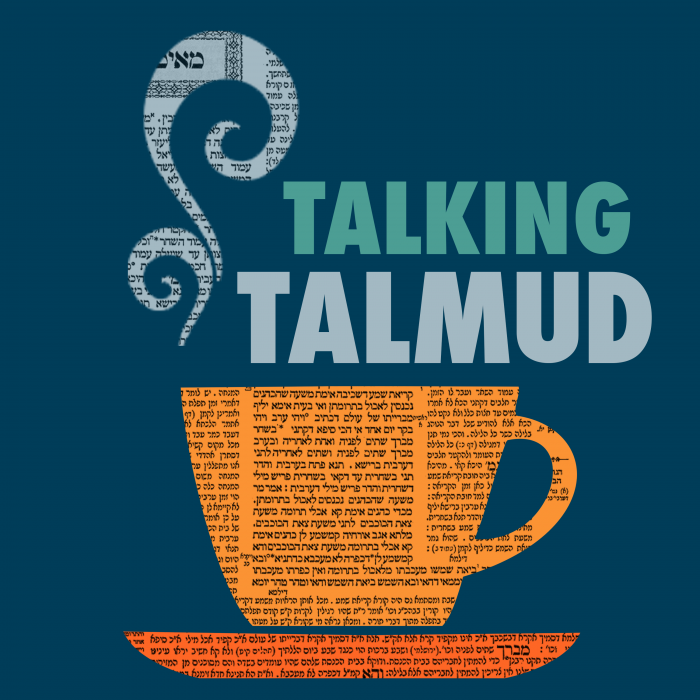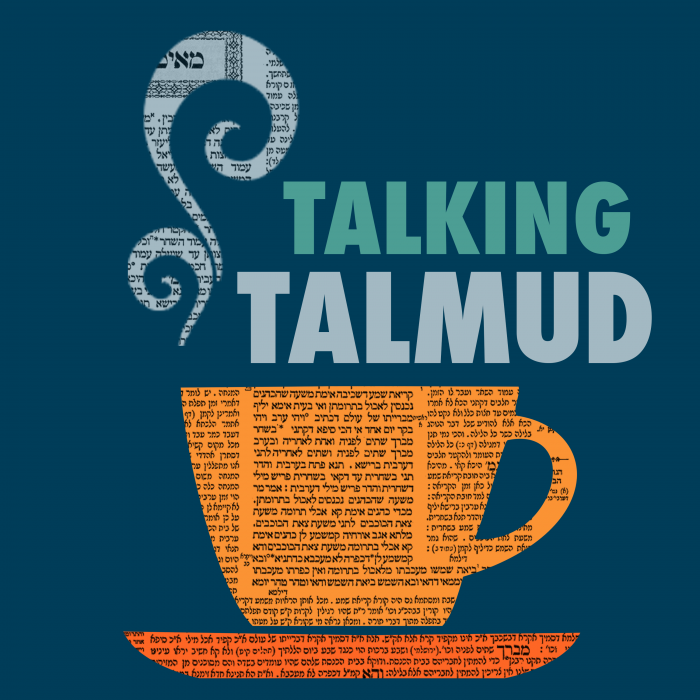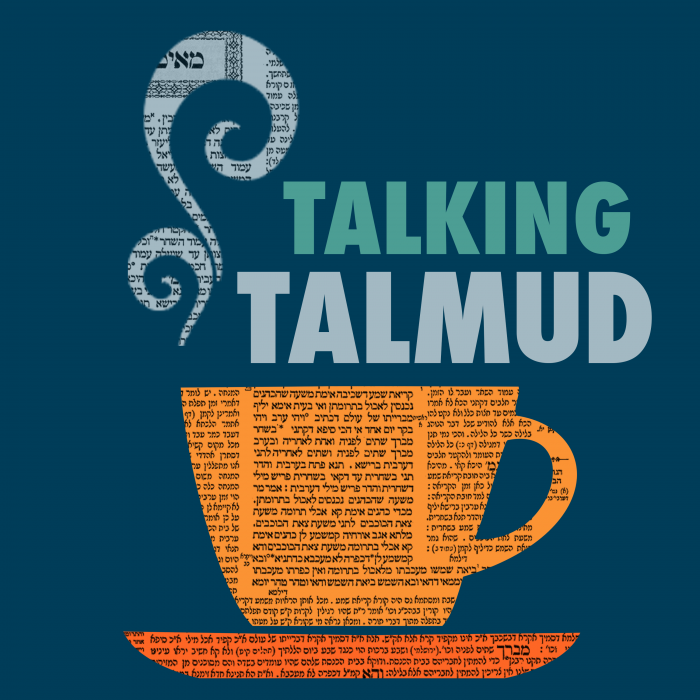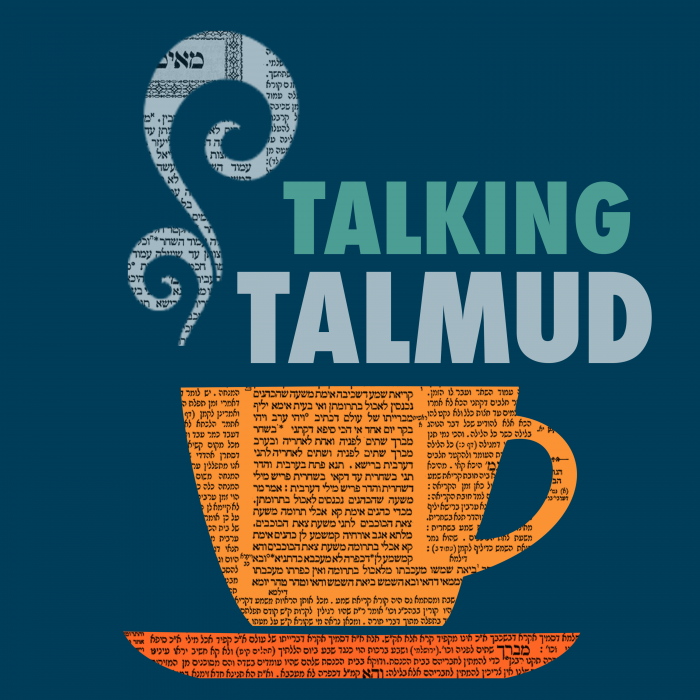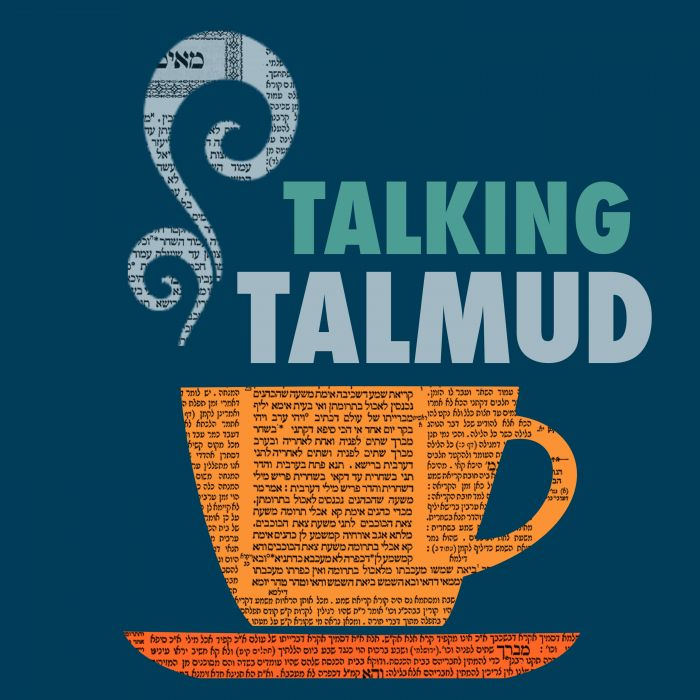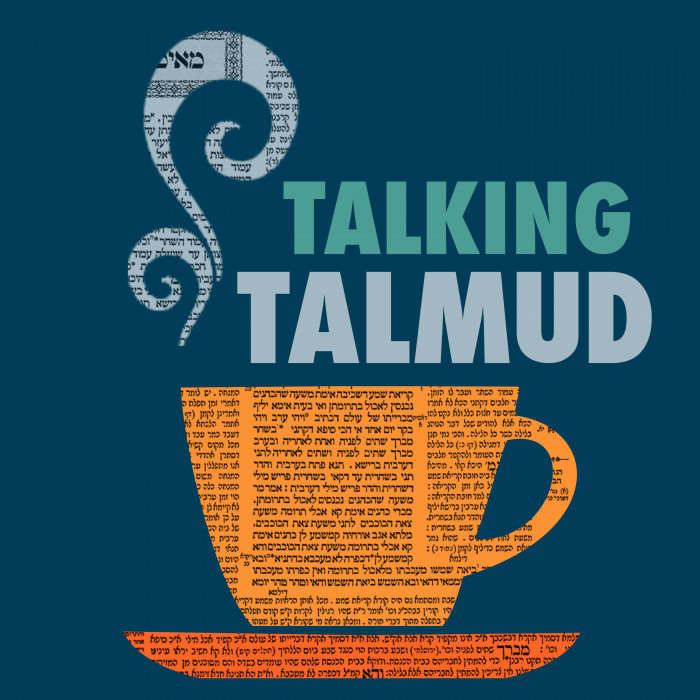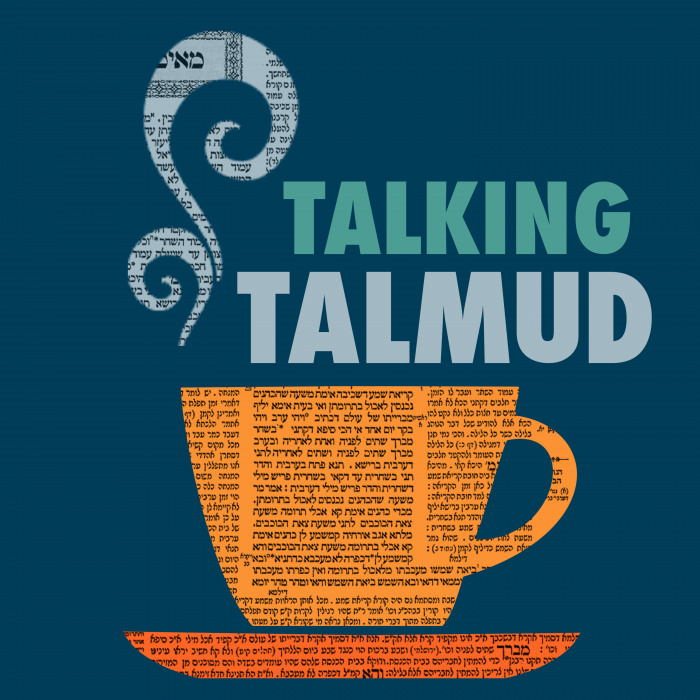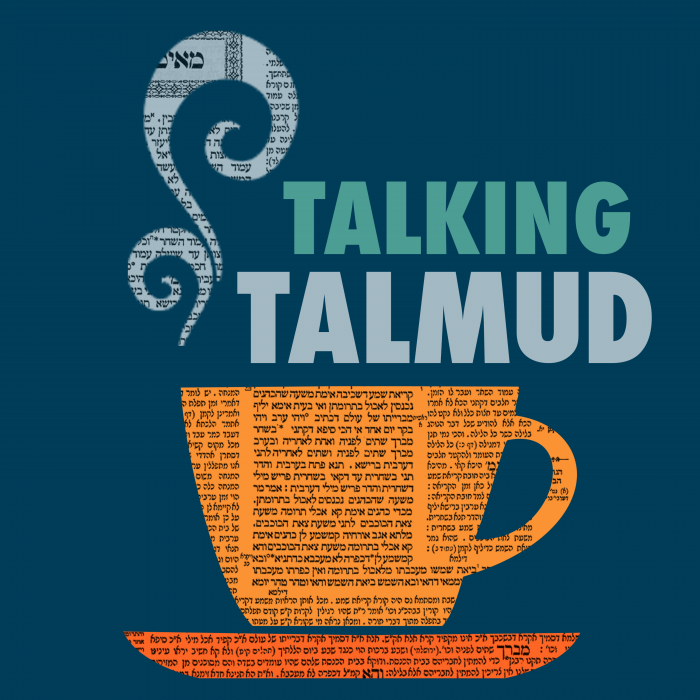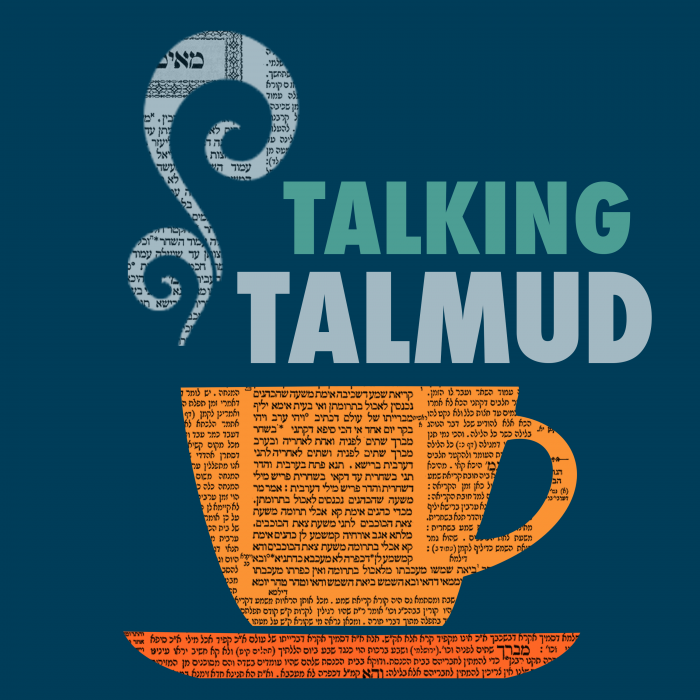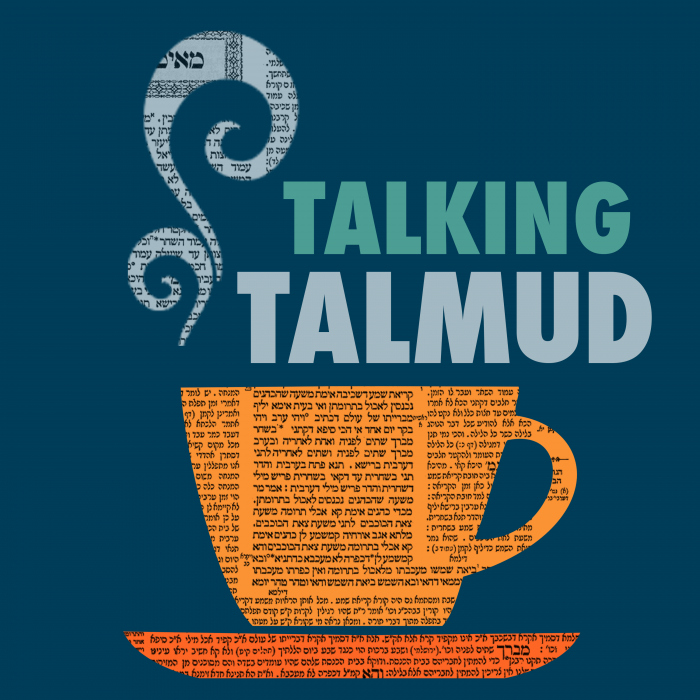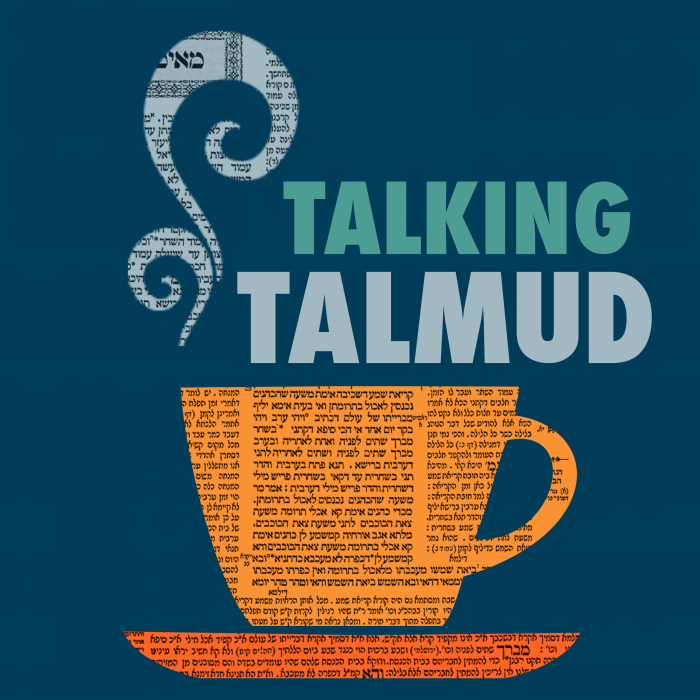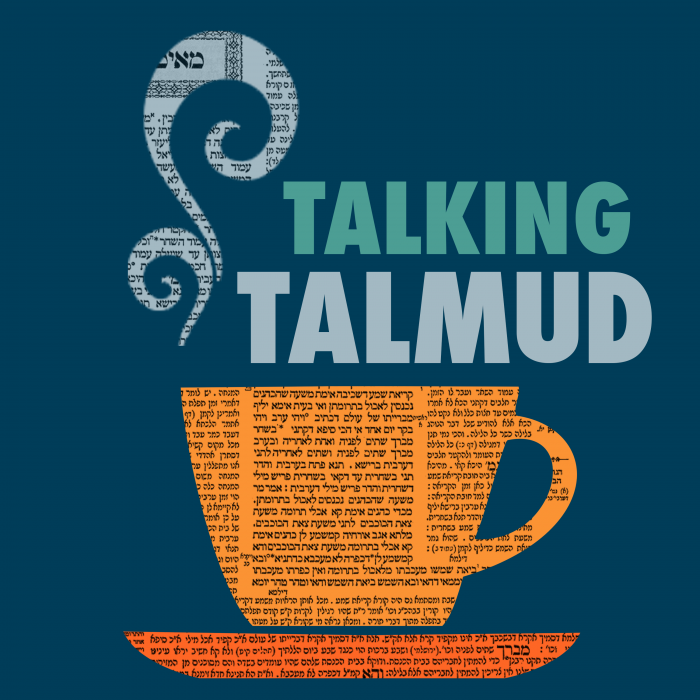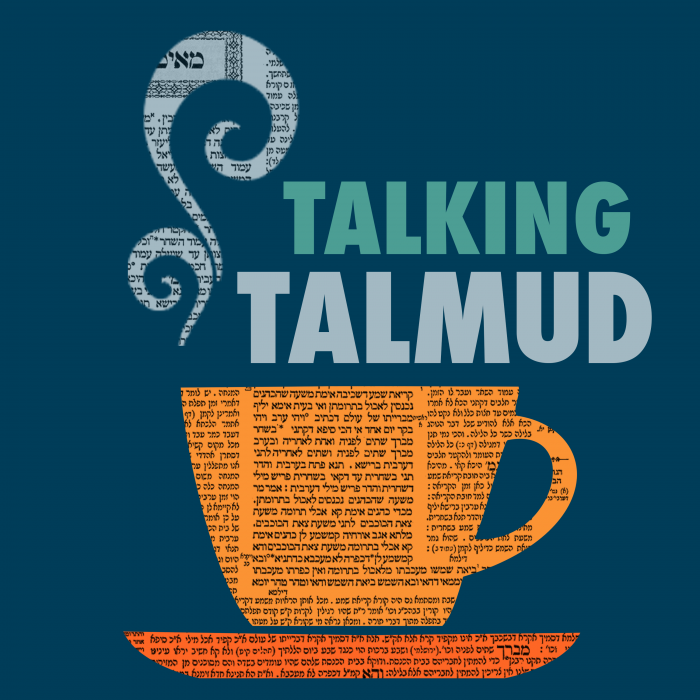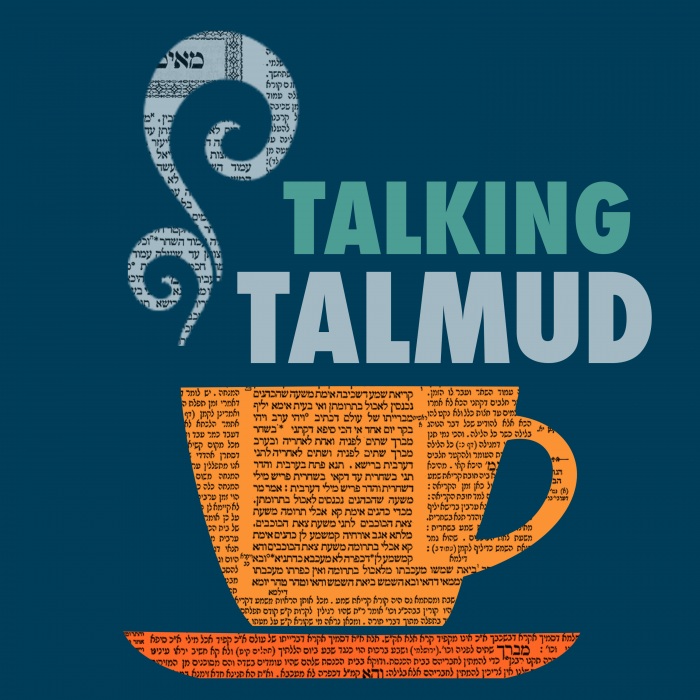Berakhot 60
מִכְּלָל דְּכִי קָנָה וְחָזַר וְקָנָה, דִּבְרֵי הַכֹּל אֵין צָרִיךְ לְבָרֵךְ.
The Gemara deduces: This proves by inference that if he purchases a new object and then purchases a similar object, everyone agrees that he is not required to recite a blessing, as he has already recited a blessing over the purchase of that type of item.
וְאִיכָּא דְּאָמְרִי: אָמַר רַב הוּנָא: לֹא שָׁנוּ אֶלָּא שֶׁלֹּא קָנָה וְחָזַר וְקָנָה, אֲבָל קָנָה וְחָזַר וְקָנָה — אֵין צָרִיךְ לְבָרֵךְ. וְרַבִּי יוֹחָנָן אָמַר: אֲפִילּוּ קָנָה חָזַר וְקָנָה — צָרִיךְ לְבָרֵךְ. מִכְּלָל דְּכִי יֵשׁ לוֹ וְקָנָה — דִּבְרֵי הַכֹּל צָרִיךְ לְבָרֵךְ.
Some say a different version of this dispute: Rav Huna said: They only taught that one recites the blessing: Who has given us life, on a new vessel if he did not purchase that item in the past and purchased the item now, for the first time. However, if he purchased that item in the past and purchased the item again, he need not recite a blessing. And Rabbi Yoḥanan said: Even if one purchased that item in the past and purchased a similar item again, he must recite a blessing. This proves by inference that if one already has a vessel and then purchased similar vessels, everyone agrees that he must recite a blessing.
מֵיתִיבִי: בָּנָה בַּיִת חָדָשׁ וְאֵין לוֹ כַּיּוֹצֵא בּוֹ, קָנָה כֵּלִים חֲדָשִׁים וְאֵין לוֹ כַּיּוֹצֵא בָּהֶם — צָרִיךְ לְבָרֵךְ. יֵשׁ לוֹ כַּיּוֹצֵא בָּהֶם — אֵין צָרִיךְ לְבָרֵךְ, דִּבְרֵי רַבִּי מֵאִיר. רַבִּי יְהוּדָה אוֹמֵר: בֵּין כָּךְ וּבֵין כָּךְ צָרִיךְ לְבָרֵךְ.
The Gemara raises an objection based on what was taught in a baraita: One who built a new house and does not already own a similar house, or purchased new vessels and does not already own similar vessels, must recite a blessing. However, if he already owns a similar one, he need not recite a blessing, this is the statement of Rabbi Meir. Rabbi Yehuda, on the other hand, says: In either case, he must recite a blessing.
בִּשְׁלָמָא לְלִישָּׁנָא קַמָּא — רַב הוּנָא כְּרַבִּי מֵאִיר, וְרַבִּי יוֹחָנָן כְּרַבִּי יְהוּדָה. אֶלָּא לְלִישָּׁנָא בָּתְרָא, בִּשְׁלָמָא רַב הוּנָא כְּרַבִּי יְהוּדָה, אֶלָּא רַבִּי יוֹחָנָן דְּאָמַר כְּמַאן? לָא כְּרַבִּי מֵאִיר וְלָא כְּרַבִּי יְהוּדָה!
The Gemara asks: Granted, according to the first version of the dispute between Rav Huna and Rabbi Yoḥanan, one could say that Rav Huna holds in accordance with the opinion of Rabbi Meir, and that Rabbi Yoḥanan holds in accordance with the opinion of Rabbi Yehuda. However, according to the latter version of the dispute, granted, Rav Huna holds in accordance with the opinion of Rabbi Yehuda, but in accordance with whose opinion did Rabbi Yoḥanan state his opinion? His statement is neither in accordance with the opinion of Rabbi Meir nor in accordance with the opinion of Rabbi Yehuda.
אָמַר לָךְ רַבִּי יוֹחָנָן: הוּא הַדִּין דִּלְרַבִּי יְהוּדָה קָנָה וְחָזַר וְקָנָה — נָמֵי צָרִיךְ לְבָרֵךְ. וְהָא דְּקָא מִיפַּלְגִי בְּיֵשׁ לוֹ וְקָנָה, לְהוֹדִיעֲךָ כֹּחוֹ דְּרַבִּי מֵאִיר דַּאֲפִילּוּ קָנָה וְיֵשׁ לוֹ — אֵין צָרִיךְ לְבָרֵךְ, וְכׇל שֶׁכֵּן קָנָה וְחָזַר וְקָנָה דְּאֵין צָרִיךְ לְבָרֵךְ.
The Gemara responds: Rabbi Yoḥanan could have said to you: The same is true according to Rabbi Yehuda’s opinion; in a case where one has purchased an item in the past and purchased a similar item again, he must recite a blessing. The fact that they only disagreed with regard to a case where he already owned similar vessels and he purchased new ones does not indicate that this is their only disagreement. The dispute was presented in this way to convey the far-reaching nature of Rabbi Meir’s opinion; even in a case where one purchased an item while owning a similar item, he need not recite a blessing; all the more so in a case where he purchased an item and then purchased a similar item again, he need not recite a blessing.
וְלִיפַּלְגוּ בְּקָנָה וְחָזַר וְקָנָה דְּאֵין צָרִיךְ לְבָרֵךְ, לְהוֹדִיעֲךָ כֹּחוֹ דְּרַבִּי יְהוּדָה! כֹּחַ דְּהֶתֵּירָא עֲדִיף לֵיהּ.
The Gemara asks: And if that is the reason for presenting the dispute in this manner, let them disagree with regard to a case where one purchased an item in the past and then purchased a similar item again, where according to Rabbi Meir one need not recite a blessing, in order to convey the far-reaching nature of Rabbi Yehuda’s opinion; as Rabbi Yehuda requires a blessing in that case. The Gemara responds: The Gemara preferred the version before us in order to demonstrate the extent to which Rabbi Meir was lenient in not requiring a blessing because the strength of leniency is preferable.
מְבָרֵךְ עַל הָרָעָה כּוּ׳.
We learned in the mishna: One recites a blessing for the bad that befalls him just as he does for the good. This is to say that one recites the blessing appropriate for the present situation even if it is bad, despite the fact that it may develop into a positive situation in the future.
הֵיכִי דָּמֵי? כְּגוֹן דִּשְׁקַל בִּדְקָא בְּאַרְעֵיהּ, אַף עַל גַּב דְּטָבָא הִיא לְדִידֵיהּ, דְּמַסְּקָא אַרְעָא שִׂירְטוֹן וְשָׁבְחָא, הַשְׁתָּא מִיהָא רָעָה הִיא.
The Gemara asks: What are the circumstances? The Gemara explains: In a case where a dam was breached and water flowed onto one’s land, despite the fact that this will ultimately be beneficial for him, for his land will be covered with sediment from the flowing water which will enhance the quality of his soil, it is nonetheless bad at present.
וְעַל הַטּוֹבָה כּוּ׳.
One must recite a blessing for the good that befalls him just as for the bad.
הֵיכִי דָּמֵי? כְּגוֹן דְּאַשְׁכַּח מְצִיאָה, אַף עַל גַּב דְּרָעָה הִיא לְדִידֵיהּ, דְּאִי שָׁמַע בַּהּ מַלְכָּא שָׁקֵיל לַהּ מִינֵּיהּ, הַשְׁתָּא מִיהָא טוֹבָה הִיא.
The Gemara asks: What are the circumstances? The Gemara explains: In a case where one found a lost object, despite the fact that it is ultimately bad for him because if the king heard about it, he would certainly take it from him. At that time, the law deemed all found objects the property of the king’s treasury and one who did not report such an object would be punished. Nevertheless, it is favorable at present.
הָיְתָה אִשְׁתּוֹ מְעוּבֶּרֶת וְאָמַר: ״יְהִי רָצוֹן שֶׁתֵּלֵד כּוּ׳״ — הֲרֵי זוֹ תְּפִלַּת שָׁוְא.
We learned in the mishna: One whose wife was pregnant and he said: May it be God’s will that my wife will give birth to a male child, it is a vain prayer.
וְלָא מַהֲנֵי רַחֲמֵי? מֵתִיב רַב יוֹסֵף: ״וְאַחַר יָלְדָה בַּת וַתִּקְרָא אֶת שְׁמָהּ דִּינָה״: מַאי ״וְאַחַר״? אָמַר רַב: לְאַחַר שֶׁדָּנָה לֵאָה דִּין בְּעַצְמָהּ וְאָמְרָה: שְׁנֵים עָשָׂר שְׁבָטִים עֲתִידִין לָצֵאת מִיַּעֲקֹב, שִׁשָּׁה יָצְאוּ מִמֶּנִּי וְאַרְבָּעָה מִן הַשְּׁפָחוֹת, הֲרֵי עֲשָׂרָה. אִם זֶה זָכָר, לֹא תְּהֵא אֲחוֹתִי רָחֵל כְּאַחַת הַשְּׁפָחוֹת, מִיָּד נֶהֶפְכָה לְבַת, שֶׁנֶּאֱמַר: ״וַתִּקְרָא אֶת שְׁמָהּ דִּינָה״. אֵין מַזְכִּירִין מַעֲשֵׂה נִסִּים.
Is a prayer in that case ineffective? Rav Yosef raises an objection based on a baraita: It is stated: “And afterwards she bore a daughter, and called her name Dina” (Genesis 30:21). The Gemara asks: What is meant by the addition of the word: Afterwards? What does the verse seek to convey by emphasizing that after the birth of Zebulun she gave birth to Dina? Rav said: After Leah passed judgment on herself and said: Twelve tribes are destined to descend from Jacob, six came from me and four from the maidservants, that is ten, and if this fetus is male, my sister Rachel will not even be the equivalent of one the maidservants; immediately the fetus was transformed into a daughter, as it is stated: And she called her name Dina; meaning she named her after her judgment [din]. The Gemara rejects this: One does not mention miraculous acts to teach general halakha.
וְאִיבָּעֵית אֵימָא: מַעֲשֶׂה דְּלֵאָה בְּתוֹךְ אַרְבָּעִים יוֹם הֲוָה. כִּדְתַנְיָא: שְׁלֹשָׁה יָמִים הָרִאשׁוֹנִים — יְבַקֵּשׁ אָדָם רַחֲמִים שֶׁלֹּא יַסְרִיחַ. מִשְּׁלֹשָׁה וְעַד אַרְבָּעִים יְבַקֵּשׁ רַחֲמִים שֶׁיְּהֵא זָכָר. מֵאַרְבָּעִים יוֹם וְעַד שְׁלֹשָׁה חֳדָשִׁים — יְבַקֵּשׁ רַחֲמִים שֶׁלֹּא יְהֵא סַנְדָּל. מִשְּׁלֹשָׁה חֳדָשִׁים וְעַד שִׁשָּׁה — יְבַקֵּשׁ רַחֲמִים שֶׁלֹּא יְהֵא נֵפֶל. מִשִּׁשָּׁה וְעַד תִּשְׁעָה — יְבַקֵּשׁ רַחֲמִים שֶׁיֵּצֵא בְּשָׁלוֹם.
The Gemara introduces an alternative explanation: And if you wish, say instead that the story of Leah and her prayer with regard to the fetus was within forty days of conception. As it was taught in a baraita: During the first three days after intercourse, one should pray that the seed not putrefy, that it will fertilize the egg and develop into a fetus. From the third day until the fortieth, one should pray that it will be male. From the fortieth day until three months, one should pray that it will not be deformed, in the shape of a flat fish, as when the fetus does not develop it assumes a shape somewhat similar to a flat sandal fish. From the third month until the sixth, one should pray that it will not be stillborn. And from the sixth month until the ninth, one should pray that it will be emerge safely. Therefore, during the first forty days from conception, one may still pray to affect the gender of the fetus.
וּמִי מַהֲנֵי רַחֲמֵי? וְהָאָמַר רַב יִצְחָק בְּרֵיהּ דְּרַב אַמֵּי: אִישׁ מַזְרִיעַ תְּחִלָּה — יוֹלֶדֶת נְקֵבָה, אִשָּׁה מַזְרַעַת תְּחִלָּה — יוֹלֶדֶת זָכָר. שֶׁנֶּאֱמַר: ״אִשָּׁה כִּי תַזְרִיעַ וְיָלְדָה זָכָר״! הָכָא בְּמַאי עָסְקִינַן — כְּגוֹן שֶׁהִזְרִיעוּ שְׁנֵיהֶם בְּבַת אַחַת.
The Gemara asks: Is prayer effective for that purpose? Didn’t Rav Yitzḥak, son of Rav Ami, say: The tradition teaches that the gender of the fetus is determined at the moment of conception. If the man emits seed first, his wife gives birth to a female; if the woman emits seed first, she gives birth to a male, as it is stated: “When a woman emitted seed and bore a male” (Leviticus 12:2). The Gemara answers: With what are we dealing here? We are dealing with a case where they both emit seed simultaneously. In that case, the gender is undetermined and prayer may be effectual.
הָיָה בָּא בַּדֶּרֶךְ.
We learned in the mishna: One who was walking along the way and heard a scream from the city, and says: May it be God’s will that this scream will not be from my house, it is a vain prayer.
תָּנוּ רַבָּנַן: מַעֲשֶׂה בְּהִלֵּל הַזָּקֵן שֶׁהָיָה בָּא בַּדֶּרֶךְ וְשָׁמַע קוֹל צְוָחָה בָּעִיר, אָמַר: מוּבְטָח אֲנִי שֶׁאֵין זֶה בְּתוֹךְ בֵּיתִי. וְעָלָיו הַכָּתוּב אוֹמֵר: ״מִשְּׁמוּעָה רָעָה לֹא יִירָא נָכוֹן לִבּוֹ בָּטֻחַ בַּה׳״. אָמַר רָבָא: כׇּל הֵיכִי דְּדָרְשַׁתְּ לְהַאי קְרָא מֵרֵישֵׁיהּ לְסֵיפֵיהּ — מִדְּרִישׁ, מִסֵּיפֵיהּ לְרֵישֵׁיהּ — מִדְּרִישׁ: מֵרֵישֵׁיהּ לְסֵיפֵיהּ מִדְּרִישׁ — ״מִשְּׁמוּעָה רָעָה לֹא יִירָא״, מַה טַּעַם? — ״נָכוֹן לִבּוֹ בָּטֻחַ בַּה׳״. מִסֵּיפֵיהּ לְרֵישֵׁיהּ מִדְּרִישׁ — ״נָכוֹן לִבּוֹ בָּטֻחַ בַּה׳, מִשְּׁמוּעָה רָעָה לֹא יִירָא״.
The Sages taught: There was an incident involving Hillel the Elder, who was coming on the road when he heard a scream in the city. He said: I am certain that the scream is not coming from my house. And of him, the verse says: “He shall not be afraid of evil tidings; his heart is steadfast, trusting in the Lord” (Psalms 112:7). Rava said: Any way that you interpret this verse, its meaning is clear. It can be interpreted from beginning to end or it can be interpreted from end to beginning. The Gemara explains: It can be interpreted from beginning to end: Why is it that: He shall not be afraid of evil tidings? Because his heart is steadfast, trusting in the Lord. The Gemara continues: And it can be interpreted from end to beginning: One whose heart is steadfast, trusting in the Lord is a person who shall not be afraid of evil tidings.
הַהוּא תַּלְמִידָא דַּהֲוָה קָא אָזֵיל בָּתְרֵיהּ דְּרַבִּי יִשְׁמָעֵאל בְּרַבִּי יוֹסֵי בְּשׁוּקָא דְצִיּוֹן. חַזְיֵיהּ דְּקָא מְפַחֵיד. אֲמַר לֵיהּ: חַטָּאָה אַתְּ, דִּכְתִיב: ״פָּחֲדוּ בְצִיּוֹן חֲטָאִים״. אֲמַר לֵיהּ: וְהָכְתִיב ״אַשְׁרֵי אָדָם מְפַחֵד תָּמִיד״! אֲמַר לֵיהּ: הַהוּא בְּדִבְרֵי תוֹרָה כְּתִיב.
The Gemara relates: This student was once walking after Rabbi Yishmael, son of Rabbi Yosei, in the marketplace of Zion. Rabbi Yishmael saw that the student was afraid. He said to him: You are a sinner, as it is written: “The transgressors in Zion are afraid, trembling has seized the ungodly” (Isaiah 33:14). The student replied: And is it not written: “Happy is the man that fears always” (Proverbs 28:14)? Rabbi Yishmael said to him: That verse is written with regard to matters of Torah, that one should be afraid lest he forget them. For everything else, one must trust in God.
יְהוּדָה בַּר נָתָן הֲוָה שָׁקֵיל וְאָזֵיל בָּתְרֵיהּ דְּרַב הַמְנוּנָא. אִתְּנַח. אֲמַר לֵיהּ: יִסּוּרִים בָּעֵי הַהוּא גַּבְרָא לְאֵתוּיֵי אַנַּפְשֵׁיהּ? דִּכְתִיב: ״כִּי פַחַד פָּחַדְתִּי וַיֶּאֱתָיֵנִי וַאֲשֶׁר יָגֹרְתִּי יָבֹא לִי״! וְהָא כְּתִיב: ״אַשְׁרֵי אָדָם מְפַחֵד תָּמִיד״! הָהוּא בְּדִבְרֵי תוֹרָה כְּתִיב.
In a similar vein, the Gemara relates: Yehuda bar Natan was coming and going after Rav Hamnuna. Yehuda bar Natan sighed; Rav Hamnuna said to him: Do you wish to bring suffering upon yourself; as it is stated: “For that which I did fear is come upon me, and that which I was afraid of has overtaken me” (Job 3:25)? He responded: Is it not said: “Happy is the man who fears always”? Rav Hamnuna answered: That verse is written with regard to matters of Torah.
הַנִּכְנָס לִכְרַךְ.
We learned in the mishna: One who enters a large city recites two prayers; Ben Azzai says he recites four prayers.
תָּנוּ רַבָּנַן: בִּכְנִיסָתוֹ מַהוּ אוֹמֵר? — ״יְהִי רָצוֹן מִלְּפָנֶיךָ ה׳ אֱלֹהַי שֶׁתַּכְנִיסֵנִי לִכְרַךְ זֶה לְשָׁלוֹם״. נִכְנַס, אוֹמֵר: ״מוֹדֶה אֲנִי לְפָנֶיךָ ה׳ אֱלֹהַי שֶׁהִכְנַסְתַּנִי לִכְרַךְ זֶה לְשָׁלוֹם״. בִּקֵּשׁ לָצֵאת, אוֹמֵר: ״יְהִי רָצוֹן מִלְּפָנֶיךָ ה׳ אֱלֹהַי וֵאלֹהֵי אֲבוֹתַי, שֶׁתּוֹצִיאֵנִי מִכְּרַךְ זֶה לְשָׁלוֹם״. יָצָא, אוֹמֵר: ״מוֹדֶה אֲנִי לְפָנֶיךָ ה׳ אֱלֹהַי שֶׁהוֹצֵאתַנִי מִכְּרַךְ זֶה לְשָׁלוֹם. וּכְשֵׁם שֶׁהוֹצֵאתַנִי לְשָׁלוֹם, כָּךְ תּוֹלִיכֵנִי לְשָׁלוֹם, וְתִסְמְכֵנִי לְשָׁלוֹם, וְתַצְעִידֵנִי לְשָׁלוֹם, וְתַצִּילֵנִי מִכַּף כׇּל אוֹיֵב וְאוֹרֵב בַּדֶּרֶךְ״.
The Sages taught the details of Ben Azzai’s teaching in a baraita:
Upon his entrance to the city what does he recite?
May it be Your will, O Lord my God, that You bring me into this city to peace.
After he entered the city, he recites: I thank You, O Lord my God, that You brought me into this city to peace.
When he seeks to leave the city, he recites: May it be Your will, O Lord my God and God of my ancestors, that You take me out of this city to peace.
After he left, he recites: I give thanks before You, O Lord my God, that You took me out of this city to peace;
and just as You took me out to peace,
so too lead me to peace, support me to peace, direct my steps to peace,
and rescue me from the hand of any enemy or those lying in ambush along the way.
אָמַר רַב מַתְנָא: לֹא שָׁנוּ אֶלָּא בִּכְרַךְ שֶׁאֵין דָּנִין וְהוֹרְגִין בּוֹ, אֲבָל בִּכְרַךְ שֶׁדָּנִין וְהוֹרְגִין בּוֹ — לֵית לַן בַּהּ.
Rav Mattana said: This was taught only with regard to a city where criminals are not tried and executed, as in a place like that he may be killed without trial. However, in a city where criminals are tried and executed, these prayers do not apply, as if one is not guilty he will not be harmed.
אִיכָּא דְּאָמְרִי, אָמַר רַב מַתְנָא: אֲפִילּוּ בִּכְרַךְ שֶׁדָּנִין וְהוֹרְגִין בּוֹ, זִימְנִין דְּלָא מִתְרְמֵי לֵיהּ אִינָשׁ דְּיָלֵיף לֵיהּ זְכוּתָא.
Some say that Rav Mattana said the opposite: Even in a city where criminals are tried and executed one must pray for mercy, as sometimes he may not encounter a person who will plead in his favor.
תָּנוּ רַבָּנַן: הַנִּכְנָס לְבֵית הַמֶּרְחָץ, אוֹמֵר: ״יְהִי רָצוֹן מִלְּפָנֶיךָ ה׳ אֱלֹהַי שֶׁתַּצִּילֵנִי מִזֶּה וְכַיּוֹצֵא בּוֹ, וְאַל יֶאֱרַע בִּי דְּבַר קַלְקָלָה וְעָוֹן. וְאִם יֶאֱרַע בִּי דְּבַר קַלְקָלָה וְעָוֹן — תְּהֵא מִיתָתִי כַּפָּרָה לְכׇל עֲוֹנוֹתַי״.
The Sages taught: One who enters a Roman bathhouse, where a fire burns beneath the pool of water used for bathing, and where there is the risk of collapse, says:
May it be Your will, O Lord my God, that you save me from this and similar matters,
and do not let ruin or iniquity befall me,
and if ruin or iniquity does befall me, let my death be atonement for all of my transgressions.
אָמַר אַבָּיֵי: לָא לֵימָא אִינָשׁ הָכִי, דְּלָא לִפְתַּח פּוּמֵּיהּ לְשָׂטָן. דְּאָמַר רֵישׁ לָקִישׁ, וְכֵן תָּנָא מִשְּׁמֵיהּ דְּרַב יוֹסֵי: לְעוֹלָם אַל יִפְתַּח אָדָם פִּיו לַשָּׂטָן.
Abaye said: One should not say: If ruin befalls me, so as not to open his mouth to Satan and provoke him. As Rabbi Shimon ben Lakish said and as it was taught in a baraita in the name of Rabbi Yosei: One should never open his mouth to Satan by raising, at his own initiative, the possibility of mishap or death.
אָמַר רַב יוֹסֵף: מַאי קְרָאָה — דִּכְתִיב: ״כִּמְעָט כִּסְדֹם הָיִינוּ לַעֲמֹרָה דָּמִינוּ״, מַאי אַהְדַּר לְהוּ נָבִיא — ״שִׁמְעוּ דְּבַר ה׳ קְצִינֵי סְדֹם וְגוֹ׳״.
Rav Yosef said: What is the verse that alludes to this? As it is written: “We should have almost been as Sodom, we should have been like unto Gomorrah” (Isaiah 1:9), after which what did the prophet reply to them? “Hear the word of the Lord, rulers of Sodom; give ear unto the law of our God, people of Gomorrah” (Isaiah 1:10). After the analogy to Sodom was raised, it was realized.
כִּי נָפֵיק מַאי אוֹמֵר? אָמַר רַב אַחָא: ״מוֹדֶה אֲנִי לְפָנֶיךָ ה׳ שֶׁהִצַּלְתַּנִי מִן הָאוּר״.
Returning to the subject of the Roman bathhouse, the Gemara asks: When he emerges from the bathhouse, what does he say? Rav Aḥa said: I give thanks to You, Lord, that You saved me from the fire.
רַבִּי אֲבָהוּ עָל לְבֵי בָנֵי. אִפְּחִית בֵּי בָנֵי מִתּוּתֵיהּ, אִתְרְחִישׁ לֵיהּ נִיסָּא קָם עַל עַמּוּדָא, שֵׁזִיב מְאָה וְחַד גַּבְרֵי בְּחַד אֵבְרֵיהּ. אֲמַר: הַיְינוּ דְּרַב אַחָא.
The Gemara relates: Rabbi Abbahu entered a bathhouse when the bathhouse floor collapsed beneath him and a miracle transpired on his behalf. He stood on a pillar and saved one hundred and one men with one arm. He held one or two people in his arm, with others holding on them and so on, so that all were saved. He said: This is confirmation of the statement of Rav Aḥa, who said that one should offer thanks upon leaving the bathhouse safely.
דְּאָמַר רַב אַחָא: הַנִּכְנָס לְהַקִּיז דָּם, אוֹמֵר: ״יְהִי רָצוֹן מִלְּפָנֶיךָ ה׳ אֱלֹהַי שֶׁיְּהֵא עֵסֶק זֶה לִי לִרְפוּאָה, וּתְרַפְּאֵנִי. כִּי אֵל רוֹפֵא נֶאֱמָן אָתָּה וּרְפוּאָתְךָ אֱמֶת, לְפִי שֶׁאֵין דַּרְכָּן שֶׁל בְּנֵי אָדָם לְרַפּאוֹת אֶלָּא שֶׁנָּהֲגוּ״.
As Rav Aḥa said: One who enters to let blood says:
May it be Your will, O Lord my God,
that this enterprise be for healing and that You should heal me.
As You are a faithful God of healing and Your healing is truth.
Because it is not the way of people to heal, but they have become accustomed.
Rav Aḥa is saying that people should not practice medicine as they lack the ability to heal; rather, healing should be left to God.
אָמַר אַבָּיֵי: לָא לֵימָא אִינָשׁ הָכִי, דְּתָנֵי דְּבֵי רַבִּי יִשְׁמָעֵאל: ״וְרַפֹּא יְרַפֵּא״ — מִכָּאן שֶׁנִּיתְּנָה רְשׁוּת לָרוֹפֵא לְרַפּאוֹת.
Abaye responded and said: One should not say this, as it was taught in the school of Rabbi Yishmael that from the verse, “And shall cause him to be thoroughly healed” (Exodus 21:19), from here we derive that permission is granted to a doctor to heal. The practice of medicine is in accordance with the will of God.
כִּי קָאֵי מַאי אוֹמֵר? — אָמַר רַב אַחָא: ״בָּרוּךְ … רוֹפֵא חִנָּם״.
As for bloodletting, the Gemara asks: When one stands after having let blood, what does he say? Rav Aḥa said: He recites in gratitude: Blessed…Who heals without payment.
הַנִּכְנָס לְבֵית הַכִּסֵּא, אוֹמֵר: ״הִתְכַּבְּדוּ מְכוּבָּדִים קְדוֹשִׁים מְשָׁרְתֵי עֶלְיוֹן, תְּנוּ כָּבוֹד לֵאלֹהֵי יִשְׂרָאֵל, הַרְפּוּ מִמֶּנִּי עַד שֶׁאֶכָּנֵס וְאֶעֱשֶׂה רְצוֹנִי וְאָבֹא אֲלֵיכֶם״. אָמַר אַבָּיֵי: לָא לֵימָא אִינָשׁ הָכִי, דִּלְמָא שָׁבְקִי לֵיהּ וְאָזְלִי. אֶלָּא לֵימָא: ״שִׁמְרוּנִי שִׁמְרוּנִי, עִזְרוּנִי עִזְרוּנִי, סִמְכוּנִי סִמְכוּנִי, הַמְתִּינוּ לִי הַמְתִּינוּ לִי עַד שֶׁאֶכָּנֵס וְאֵצֵא, שֶׁכֵּן דַּרְכָּן שֶׁל בְּנֵי אָדָם״. כִּי נָפֵיק, אוֹמֵר: ״בָּרוּךְ … אֲשֶׁר יָצַר אֶת הָאָדָם בְּחׇכְמָה, וּבָרָא בּוֹ נְקָבִים נְקָבִים, חֲלָלִים חֲלָלִים, גָּלוּי וְיָדוּעַ לִפְנֵי כִּסֵּא כְּבוֹדֶךָ שֶׁאִם יִפָּתֵחַ אֶחָד מֵהֶם אוֹ אִם יִסָּתֵם אֶחָד מֵהֶם אִי אֶפְשָׁר לַעֲמוֹד לְפָנֶיךָ״.
One who enters a bathroom says to the angels who accompany him at all times:
Be honored, honorable holy ones, servants of the One on High,
give honor to the God of Israel,
leave me until I enter and do my will and come back to you.
Abaye said: A person should not say this, lest they abandon him and go. Rather he should say:
Guard me, guard me,
help me, help me,
support me, support me,
wait for me, wait for me until I enter and come out, as this is the way of man.
Upon exiting, one says:
Blessed…Who formed man in wisdom,
and created in him many orifices and cavities.
It is revealed and known before the throne of Your glory
that were one of them to be ruptured or blocked, it would be impossible to survive and stand before You.
מַאי חָתֵים? אָמַר רַב: ״רוֹפֵא חוֹלִים״. אָמַר שְׁמוּאֵל: קָא שַׁוִּינְהוּ אַבָּא לְכוּלֵּי עָלְמָא קְצִירֵי. אֶלָּא: ״רוֹפֵא כׇל בָּשָׂר״. רַב שֵׁשֶׁת אָמַר: ״מַפְלִיא לַעֲשׂוֹת״. אָמַר רַב פָּפָּא: הִלְכָּךְ נֵמְרִינְהוּ לְתַרְוַיְיהוּ — ״רוֹפֵא כׇל בָּשָׂר וּמַפְלִיא לַעֲשׂוֹת״.
The Gemara asks: With what should one conclude this blessing? Rav said: One should conclude: Blessed…Healer of the sick. Shmuel said: Abba, Rav, has rendered everyone sick. Rather, one should say: Healer of all flesh. Rav Sheshet said: One should conclude: Who performs wondrous deeds. Rav Pappa said: Therefore, let us say them both: Healer of all flesh, Who performs wondrous deeds.
הַנִּכְנָס לִישַׁן עַל מִטָּתוֹ, אוֹמֵר מִ״שְּׁמַע יִשְׂרָאֵל״ עַד ״וְהָיָה אִם שָׁמוֹעַ״, וְאוֹמֵר: ״בָּרוּךְ … הַמַּפִּיל חַבְלֵי שֵׁינָה עַל עֵינַי וּתְנוּמָה עַל עַפְעַפַּי, וּמֵאִיר לְאִישׁוֹן בַּת עָיִן. יְהִי רָצוֹן מִלְּפָנֶיךָ ה׳ אֱלֹהַי, שֶׁתַּשְׁכִּיבֵנִי לְשָׁלוֹם, וְתֵן חֶלְקִי בְּתוֹרָתֶךָ, וְתַרְגִּילֵנִי לִידֵי מִצְוָה, וְאַל תַּרְגִּילֵנִי לִידֵי עֲבֵירָה, וְאַל תְּבִיאֵנִי לִידֵי חֵטְא, וְלֹא לִידֵי עָוֹן, וְלֹא לִידֵי נִסָּיוֹן, וְלֹא לִידֵי בִזָּיוֹן. וְיִשְׁלוֹט בִּי יֵצֶר טוֹב, וְאַל יִשְׁלוֹט בִּי יֵצֶר הָרָע. וְתַצִּילֵנִי מִפֶּגַע רַע, וּמֵחֳלָאִים רָעִים. וְאַל יְבַהֲלוּנִי חֲלוֹמוֹת רָעִים וְהִרְהוּרִים רָעִים. וּתְהֵא מִטָּתִי שְׁלֵמָה לְפָנֶיךָ. וְהָאֵר עֵינַי פֶּן אִישַׁן הַמָּוֶת. בָּרוּךְ אַתָּה ה׳ הַמֵּאִיר לָעוֹלָם כּוּלּוֹ בִּכְבוֹדוֹ״.
The Gemara proceeds to cite additional blessings recited as part of one’s daily routine. One who enters to sleep on his bed recites Shema in his bed from Shema Yisrael to VeHaya Im Shamoa. Then he recites:
Blessed…Who makes the bands of sleep fall upon my eyes and slumber upon my eyelids,
and illuminates the pupil of the eye.
May it be Your will, O Lord my God,
that You make me lie down in peace and give me my portion in Your Torah,
accustom me to mitzvot and do not accustom me to transgression,
lead me not into error, nor into iniquity, nor into temptation nor into disgrace.
May the good inclination have dominion over me
and may the evil inclination not have dominion over me.
Save me from an evil mishap and evil diseases.
Let neither bad dreams nor troubling thoughts disturb me.
May my bed be flawless before You, that my progeny should not be flawed.
Enlighten my eyes in the morning lest I sleep the sleep of death, never to awaken.
Blessed are You, O Lord, Who gives light to the whole world in His glory.
כִּי מִתְּעַר אוֹמֵר: ״אֱלֹהַי, נְשָׁמָה שֶׁנָּתַתָּ בִּי טְהוֹרָה. אַתָּה יְצַרְתָּהּ בִּי, אַתָּה נְפַחְתָּהּ בִּי, וְאַתָּה מְשַׁמְּרָהּ בְּקִרְבִּי, וְאַתָּה עָתִיד לִיטְּלָהּ מִמֶּנִּי וּלְהַחֲזִירָהּ בִּי לְעָתִיד לָבֹא. כׇּל זְמַן שֶׁהַנְּשָׁמָה בְּקִרְבִּי מוֹדֶה אֲנִי לְפָנֶיךָ ה׳ אֱלֹהַי וֵאלֹהֵי אֲבוֹתַי, רִבּוֹן כׇּל הָעוֹלָמִים, אֲדוֹן כׇּל הַנְּשָׁמוֹת. בָּרוּךְ אַתָּה ה׳, הַמַּחֲזִיר נְשָׁמוֹת לִפְגָרִים מֵתִים״.
When one awakens, he recites:
My God, the soul You have placed within me is pure.
You formed it within me,
You breathed it into me,
and You guard it while it is within me.
One day You will take it from me and restore it within me in the time to come.
As long as the soul is within me, I thank You,
O Lord my God and God of my ancestors, Master of all worlds, Lord of all souls.
Blessed are You, O Lord, who restores souls to lifeless bodies.
כִּי שָׁמַע קוֹל תַּרְנְגוֹלָא, לֵימָא: ״בָּרוּךְ … אֲשֶׁר נָתַן לַשֶּׂכְוִי בִּינָה לְהַבְחִין בֵּין יוֹם וּבֵין לָיְלָה״. כִּי פָּתַח עֵינֵיהּ, לֵימָא: ״בָּרוּךְ … פּוֹקֵחַ עִוְּרִים״. כִּי תָּרֵיץ וְיָתֵיב, לֵימָא: ״בָּרוּךְ … מַתִּיר אֲסוּרִים״. כִּי לָבֵישׁ, לֵימָא: ״בָּרוּךְ … מַלְבִּישׁ עֲרוּמִּים״. כִּי זָקֵיף, לֵימָא: ״בָּרוּךְ … זוֹקֵף כְּפוּפִים״. כִּי נָחֵית לְאַרְעָא, לֵימָא: ״בָּרוּךְ … רוֹקַע הָאָרֶץ עַל הַמָּיִם״. כִּי מְסַגֵּי, לֵימָא: ״בָּרוּךְ … הַמֵּכִין מִצְעֲדֵי גָבֶר״. כִּי סַיֵּים מְסָאנֵיהּ, לֵימָא: ״בָּרוּךְ … שֶׁעָשָׂה לִי כׇּל צׇרְכִּי״. כִּי אָסַר הֶמְיָינֵיהּ, לֵימָא: ״בָּרוּךְ … אוֹזֵר יִשְׂרָאֵל בִּגְבוּרָה״. כִּי פָּרֵיס סוּדָרָא עַל רֵישֵׁיהּ, לֵימָא: ״בָּרוּךְ … עוֹטֵר יִשְׂרָאֵל בְּתִפְאָרָה״.
Upon hearing the sound of the rooster, one should recite: Blessed…Who gave the heart [sekhvi] understanding to distinguish between day and night.
Upon opening his eyes, one should recite: Blessed…Who gives sight to the blind.
Upon sitting up straight, one should recite: Blessed…Who sets captives free.
Upon dressing, one should recite: Blessed…Who clothes the naked, as they would sleep unclothed.
Upon standing up straight, one should recite: Blessed…Who raises those bowed down.
Upon descending from one’s bed to the ground, one should recite: Blessed…Who spreads the earth above the waters, in thanksgiving for the creation of solid ground upon which to walk.
Upon walking, one should recite: Blessed…Who makes firm the steps of man.
Upon putting on his shoes, one should recite: Blessed…Who has provided me with all I need, as shoes are a basic necessity.
Upon putting on his belt, one should recite: Blessed…Who girds Israel with strength.
Upon spreading a shawl upon his head, one should recite: Blessed…Who crowns Israel with glory.
כִּי מִעֲטַף בְּצִיצִית, לֵימָא: ״בָּרוּךְ … אֲשֶׁר קִדְּשָׁנוּ בְּמִצְוֹתָיו וְצִוָּנוּ לְהִתְעַטֵּף בְּצִיצִית״. כִּי מַנַּח תְּפִילִּין אַדְּרָעֵיהּ, לֵימָא: ״בָּרוּךְ … אֲשֶׁר קִדְּשָׁנוּ בְּמִצְוֹתָיו וְצִוָּנוּ לְהַנִּיחַ תְּפִילִּין״, אַרֵישֵׁיהּ, לֵימָא: ״בָּרוּךְ … אֲשֶׁר קִדְּשָׁנוּ בְּמִצְוֹתָיו וְצִוָּנוּ עַל מִצְוַת תְּפִילִּין״. כִּי מָשֵׁי יְדֵיהּ ,לֵימָא: ״בָּרוּךְ … אֲשֶׁר קִדְּשָׁנוּ בְּמִצְוֹתָיו וְצִוָּנוּ עַל נְטִילַת יָדַיִם״. כִּי מָשֵׁי אַפֵּיהּ, לֵימָא: בָּרוּךְ … הַמַּעֲבִיר חֶבְלֵי שֵׁינָה מֵעֵינָי וּתְנוּמָה מֵעַפְעַפָּי. וִיהִי רָצוֹן מִלְּפָנֶיךָ ה׳ אֱלֹהַי, שֶׁתַּרְגִּילֵנִי בְּתוֹרָתֶךָ, וְדַבְּקֵנִי בְּמִצְוֹתֶיךָ, וְאַל תְּבִיאֵנִי לֹא לִידֵי חֵטְא, וְלֹא לִידֵי עָוֹן, וְלֹא לִידֵי נִסָּיוֹן, וְלֹא לִידֵי בִזָּיוֹן. וְכוֹף אֶת יִצְרִי לְהִשְׁתַּעְבֵּד לָךְ. וְרַחֲקֵנִי מֵאָדָם רָע, וּמֵחָבֵר רָע. וְדַבְּקֵנִי בְּיֵצֶר טוֹב וּבְחָבֵר טוֹב בְּעוֹלָמֶךָ. וּתְנֵנִי הַיּוֹם וּבְכׇל יוֹם לְחֵן וּלְחֶסֶד וּלְרַחֲמִים בְּעֵינֶיךָ וּבְעֵינֵי כׇּל רוֹאַי, וְתִגְמְלֵנִי חֲסָדִים טוֹבִים. בָּרוּךְ אַתָּה ה׳ גּוֹמֵל חֲסָדִים טוֹבִים לְעַמּוֹ יִשְׂרָאֵל״.
Upon wrapping himself in ritual fringes, one should recite: Blessed…Who has made us holy through His commandments and has commanded us to wrap ourselves in a garment with ritual fringes.
Upon donning his phylacteries on his arm, one should recite: Blessed…Who has made us holy through His commandments and has commanded us to don phylacteries.
Upon donning phylacteries on his head one should recite: Blessed…Who has made us holy through His commandments and has commanded us with regard to the mitzva of phylacteries.
Upon ritually washing his hands: Blessed…Who has made us holy through His commandments and has commanded us with regard to the washing of the hands.
Upon washing his face, one recites: Blessed…Who removes the bands of sleep from my eyes and slumber from my eyelids.
And may it be Your will, O Lord my God, to accustom me in Your Torah,
attach me to Your mitzvot, and lead me not into transgression,
nor into error, nor into iniquity, nor into temptation nor into disgrace.
Bend my evil inclination to be subservient to You,
and distance me from an evil person and an evil acquaintance.
Help me attach myself to the good inclination and to a good friend in Your world.
Grant me, today and every day, grace, loving-kindness, and compassion in Your eyes and the eyes of all who see me,
and bestow loving-kindness upon me.
Blessed are You, O Lord, Who bestows loving-kindness on His people, Israel.
חַיָּיב אָדָם לְבָרֵךְ כּוּ׳: מַאי ״חַיָּיב לְבָרֵךְ עַל הָרָעָה כְּשֵׁם שֶׁמְּבָרֵךְ עַל הַטּוֹבָה״? אִילֵּימָא כְּשֵׁם שֶׁמְּבָרֵךְ עַל הַטּוֹבָה ״הַטּוֹב וְהַמֵּטִיב״, כָּךְ מְבָרֵךְ עַל הָרָעָה ״הַטּוֹב וְהַמֵּטִיב״, וְהָתְנַן עַל בְּשׂוֹרוֹת טוֹבוֹת אוֹמֵר ״הַטּוֹב וְהַמֵּטִיב״, עַל בְּשׂוֹרוֹת רָעוֹת אוֹמֵר ״בָּרוּךְ … דַּיַּין הָאֱמֶת״! אָמַר רָבָא: לֹא נִצְרְכָה, אֶלָּא לְקַבּוֹלִינְהוּ בְּשִׂמְחָה.
We learned in the mishna: One is obligated to recite a blessing for the bad that befalls him just as he recites a blessing for the good that befalls him. The Gemara asks: What does it mean: One is obligated to recite a blessing for the bad just as for the good? If we say this means that just as one recites a blessing for a positive event with the formula: Who is good and does good, so too one recites a blessing for a calamity with the formula: Who is good and does good, didn’t we learn in our mishna that over good tidings one recites: Who is good and does good, while over bad tidings one recites: Blessed…the true Judge? Rather, Rava said: The mishna’s statement was only necessary to instruct us to accept bad tidings with the same joy with which we accept good tidings, not to instruct with regard to which blessing to recite.
אָמַר רַב אַחָא מִשּׁוּם רַבִּי לֵוִי: מַאי קְרָא — ״חֶסֶד וּמִשְׁפָּט אָשִׁירָה לְךָ ה׳ אֲזַמֵּרָה״. אִם חֶסֶד — אָשִׁירָה, וְאִם מִשְׁפָּט — אָשִׁירָה.
Rav Aḥa said in the name of Rabbi Levi: What is the verse that alludes to this? “I will sing of loving-kindness and justice; unto You, O Lord, will I sing praises” (Psalms 101:1). Rav Aḥa explains: If it is loving-kindness, I will sing, and if it is justice, I will sing. I will thank God in song for the bad just as for the good.
רַבִּי שְׁמוּאֵל בַּר נַחְמָנִי אָמַר, מֵהָכָא: ״בַּה׳ אֲהַלֵּל דָּבָר בֵּאלֹהִים אֲהַלֵּל דָּבָר״. בַּה׳ אֲהַלֵּל דָּבָר — זוֹ מִדָּה טוֹבָה, בֵּאלֹהִים אֲהַלֵּל דָּבָר — זוֹ מִדַּת פּוּרְעָנוּת.
Rabbi Shmuel bar Naḥmani said: The proof is from here, as it is stated: “In God, I will praise His word; in the Lord, I will praise His word” (Psalms 56:11). The Gemara explains that In God, I will praise His word; that is the revelation of God’s attribute of benevolence, while: In the Lord, I will praise His word; that is the attribute of suffering; even if God brings suffering to bear upon me, I will still praise Him.
רַבִּי תַּנְחוּם אָמַר: מֵהָכָא: ״כּוֹס יְשׁוּעוֹת אֶשָּׂא וּבְשֵׁם ה׳ אֶקְרָא״, ״צָרָה וְיָגוֹן אֶמְצָא וּבְשֵׁם ה׳ אֶקְרָא״.
Rabbi Tanḥum said: The proof is from here, as it is stated: “I will lift up the cup of salvation and call upon the name of the Lord” (Psalms 116:13), and: “I found trouble and sorrow, but I called upon the name of the Lord” (Psalms 116:3–4).
וְרַבָּנַן אָמְרִי, מֵהָכָא: ״ה׳ נָתָן וַה׳ לָקָח יְהִי שֵׁם ה׳ מְבֹרָךְ״.
And the Rabbis said: The proof is from here, as it is stated: “The Lord has given and the Lord has taken away; blessed be the name of the Lord” (Job 1:21).
אָמַר רַב הוּנָא אָמַר רַב מִשּׁוּם רַבִּי מֵאִיר, וְכֵן תָּנָא מִשְּׁמֵיהּ דְּרַבִּי עֲקִיבָא: לְעוֹלָם יְהֵא אָדָם רָגִיל לוֹמַר: ״כׇּל דְּעָבֵיד רַחֲמָנָא לְטָב עָבֵיד״.
Rav Huna said that Rav said that Rabbi Meir said; and so it was taught in a baraita in the name of Rabbi Akiva: One must always accustom oneself to say: Everything that God does, He does for the best.
כִּי הָא דְּרַבִּי עֲקִיבָא דַּהֲוָה קָאָזֵיל בְּאוֹרְחָא. מְטָא לְהַהִיא מָתָא, בְּעָא אוּשְׁפִּיזָא לָא יָהֲבִי לֵיהּ. אֲמַר: ״כׇּל דְּעָבֵיד רַחֲמָנָא — לְטָב״. אֲזַל וּבָת בְּדַבְרָא, וַהֲוָה בַּהֲדֵיהּ תַּרְנְגוֹלָא וַחֲמָרָא וּשְׁרָגָא. אֲתָא זִיקָא כַּבְיֵיהּ לִשְׁרָגָא. אֲתָא שׁוּנָּרָא אַכְלֵיהּ לְתַרְנְגוֹלָא. אֲתָא אַרְיָה אַכְלֵיהּ לַחֲמָרָא. אֲמַר: ״כׇּל דְּעָבֵיד רַחֲמָנָא — לְטָב״. בֵּיהּ בְּלֵילְיָא אֲתָא גְּיָיסָא, שַׁבְיַיהּ לְמָתָא. אֲמַר לְהוּ: לָאו אֲמַרִי לְכוּ כׇּל מַה שֶּׁעוֹשֶׂה הַקָּדוֹשׁ בָּרוּךְ הוּא
The Gemara relates: Like this incident, when Rabbi Akiva was walking along the road and came to a certain city, he inquired about lodging and they did not give him any. He said: Everything that God does, He does for the best. He went and slept in a field, and he had with him a rooster, a donkey and a candle. A gust of wind came and extinguished the candle; a cat came and ate the rooster; and a lion came and ate the donkey. He said: Everything that God does, He does for the best. That night, an army came and took the city into captivity. It turned out that Rabbi Akiva alone, who was not in the city and had no lit candle, noisy rooster or donkey to give away his location, was saved. He said to them: Didn’t I tell you? Everything that God does,




